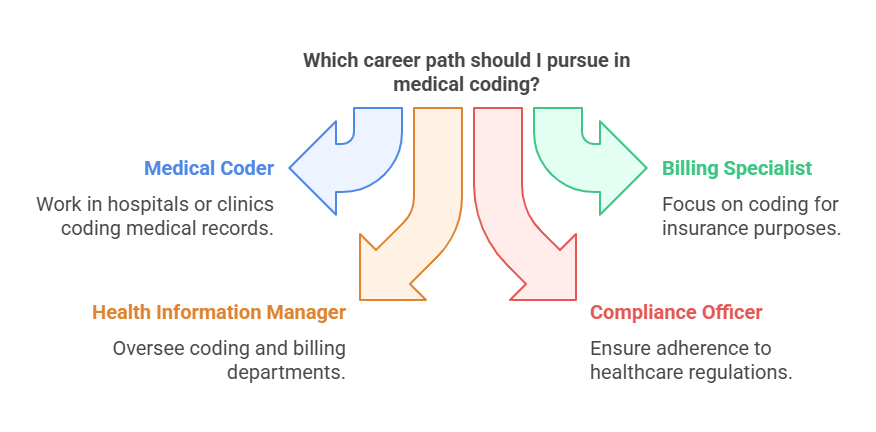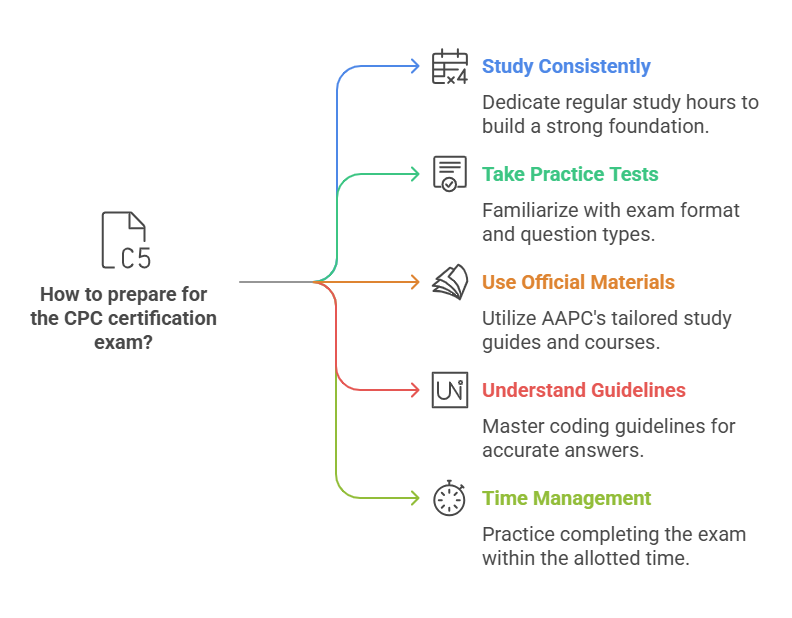How to Start Your Career as a Certified Professional Medical Coder
If you're considering a career in healthcare but don't want to be directly involved in patient care, becoming a Certified Professional Medical Coder (CPC) could be the perfect path for you. This career allows you to contribute significantly to the healthcare industry by translating complex medical procedures and diagnoses into standardized codes used for billing, insurance claims, and medical records. In this blog, we'll explore everything you need to know about becoming a certified medical coder, from the qualifications required to tips for passing the certification exams.
What is a Certified Professional Medical Coder?
A Certified Professional Medical Coder (CPC) is a healthcare professional trained to convert medical diagnoses, procedures, and treatments into standardized codes. These codes are essential for insurance reimbursement, maintaining accurate records, and preventing fraud. While coding is crucial, it’s important to understand the difference b/t medical scribing and coding, as both roles support healthcare documentation but serve different functions. Coders work with several classification systems, including:
ICD-10 (International Classification of Diseases)
CPT (Current Procedural Terminology)
HCPCS (Healthcare Common Procedure Coding System)
The role of a medical coder is vital in the healthcare industry, ensuring that healthcare providers are reimbursed correctly for their services and that patient data is accurately recorded.
Required Qualifications and Certifications
To become a certified medical coder, certain educational qualifications and certifications are required:
Educational Requirements
A high school diploma or GED is the minimum educational requirement. However, most employers prefer candidates with a postsecondary education in medical coding or health information management. Many universities, community colleges, and online platforms offer programs tailored to aspiring coders.
Certification
The most recognized certification for medical coders is the Certified Professional Medical Coder (CPC), awarded by the AAPC (American Academy of Professional Coders). Obtaining the CPC credential demonstrates that the coder has the knowledge and skills needed to accurately code medical procedures and diagnoses.
Additional certifications can enhance your qualifications, including:
Certified Coding Specialist (CCS) by AHIMA
Certified Inpatient Coder (CIC) by AAPC
Certified Outpatient Coder (COC) by AAPC
These certifications can open doors to specialized roles in the coding field.
Online vs. In-Person Training Programs
When it comes to training, you can choose between online programs and in-person courses. Each has its benefits depending on your learning style and schedule.
Online Training
Online courses offer flexibility and convenience. You can study at your own pace and fit the coursework around your personal life. Some popular online platforms offering medical coding programs include:
AAPC Online Courses
Coursera
Udemy
These courses are typically self-paced, and some programs may include practice exams to help you prepare for the CPC certification exam.
In-Person Training
In-person programs offer structured classroom environments where you can interact with instructors and peers. These programs are typically offered by community colleges and vocational schools. If you thrive in a structured setting with direct support, an in-person program might be a better fit.
Career Paths and Job Outlook
Once certified, a variety of career paths are available in the medical coding field. Here are some roles you could pursue:
Medical Coder: Work in hospitals, clinics, or doctor's offices coding medical records.
Billing Specialist: Focus on coding for insurance purposes.
Health Information Manager: Oversee and manage coding and billing departments.
Compliance Officer: Ensure that healthcare providers are adhering to regulations and guidelines.
Job Outlook
According to the U.S. Bureau of Labor Statistics (BLS), the employment of medical records and health information technicians, which includes medical coders, is projected to grow by 8% from 2019 to 2029, faster than the average for all occupations. This growth is driven by an aging population and an increased focus on healthcare data accuracy.
Salary Expectations
The salary for a Certified Professional Medical Coder varies based on experience, location, and industry. On average, according to AAPC’s 2020 Salary Survey:
Entry-level coders can expect to earn around $45,000 per year.
Experienced coders (with 5 or more years of experience) earn $55,000 to $60,000 annually.
Specialized coders, such as those working in inpatient coding, can earn upwards of $65,000 or more.
Tips for Passing Certification Exams
The CPC certification exam is a challenging, 150-question test that requires a deep understanding of coding systems. Here are some tips to help you pass:
Study Consistently: Dedicate a set number of hours each week to studying.
Take Practice Tests: Use practice exams to familiarize yourself with the exam format and types of questions.
Use Official Study Materials: AAPC provides official study guides and prep courses that are tailored to the CPC exam.
Understand the Guidelines: Make sure you understand coding guidelines, as they are essential for passing the exam.
Time Management: Practice completing the exam within the allotted time to avoid feeling rushed on the test day.
Tools and Software Knowledge Required
Medical coders use various tools and software to perform their tasks. Some essential tools include:
Electronic Health Records (EHR) Systems: These systems store patient data, which coders access to input medical codes.
Coding Software: Tools like 3M CodeFinder and Optum360 can assist coders in accurately identifying the correct codes.
Microsoft Excel: Many coders use spreadsheets to track coding accuracy and maintain records.
Familiarizing yourself with these tools will be vital for success in the field.
Conclusion
Becoming a Certified Professional Medical Coder offers a fulfilling and in-demand career path. Whether you’re considering online or in-person training, passing your certification exams, or exploring various career options, this profession provides job stability and opportunities for advancement.
If you’re ready to take the next step in your career and pursue medical scribe certification, ACMSO offers comprehensive training programs for aspiring professionals. Our Medical Scribe Certifications are recognized across the healthcare industry and can help you excel in your new career!
Lesser-Known Facts
Medical coding is not just about numbers. Coders must understand medical terminology and anatomy to accurately assign codes. Learn More.
Medical coders can work in various industries, including insurance, government, and private healthcare systems. Explore Opportunities.
Some coders become auditors, reviewing the work of other medical coders to ensure accuracy. Auditing Information.
Coding certifications can be renewed every two years, keeping you current with the latest industry standards. Certification Renewal.
Medical coders often use modifiers to adjust the code based on the complexity of the procedure. Learn About Modifiers.
Coders must stay informed about new medical procedures, as updates to coding systems occur regularly. Medical Updates.
FAQs
-
It typically takes around 6 months to 2 years, depending on your training program and whether you study full-time or part-time.
-
Yes, many medical coders work remotely, especially those employed by large health organizations or insurance companies.
-
ICD-10 codes are used for diagnoses, while CPT codes are used for procedures and services provided to patients.
-
Yes, to maintain certification, coders must complete continuing education and stay updated with new coding regulations.
-
Yes, you can specialize in areas like oncology coding, cardiology coding, or outpatient coding, which often require additional certification.







